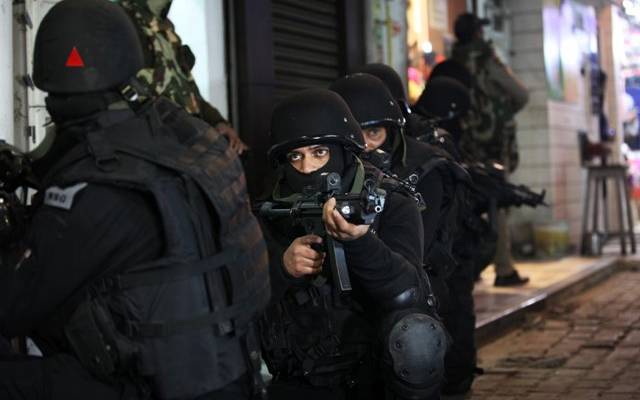
Suspected Islamic terrorist Jeb Afridi. (NIA)
India’s security forces caught a Muslim terrorist after he spent years on the run attacking Israeli targets and being influenced by anti-Semitic literature.
India’s National Investigation Agency (NIA) arrested the prime suspect in the Church Street Blast in Bangalore in 2014 that targeted an Israeli delegation, it announced on Friday.
The suspect, Mohammed Rafeeq, known also as Jeb Afridi, a resident of Ahmedabad, set off a bomb on December 28, 2014, in front of the Coconut Grove Bar & Restaurant at Church Street, Bangalore, killing one woman and wounding two others. No Israelis were harmed in the attack.
Afridi, a major figure in Indian Islamic terrorists scene, is also suspected in the organization of a terrorist training camp by the Students Islamic Movement of India (SIMI) at Waghamon in Kerala.
He had been on the run for more than five years and a large award had been announced by NIA for any information leading to his arrest.
He had been residing in outskirts of Bangalore for nearly three years and was working as an air-conditioning mechanic.
In custody, he confessed to his involvement in the Church Street attack. He said he planned to plant the bomb inside the Coconut Grove Bar & Restaurant, but was deterred by the presence of staff, and therefore he planted it outside near the wall.
His target was a visit by an Israeli delegation to the café for dinner that night.
Afridi is also suspected to be involved in the Ahmedabad blast cases of 2008, and admitted his role in committing arson at the Israeli Visa Centre in Bangalore.
During s search of his residence is Bangalore, the investigators recovered a lot of anti-Semitic hate literature, the NIA said in a statement.
Afridi has been remanded for 10 days by the NIA Special Court at Bangalore.
“Afridi is a big fish in the net,” NIA officials said. He is a prominent Indian Mujahideen [Muslim holy warriors] activist in South India, and among the leaders connecting North Indian Mujahideen activists with their South Indian counterparts, the Times of India reported.










